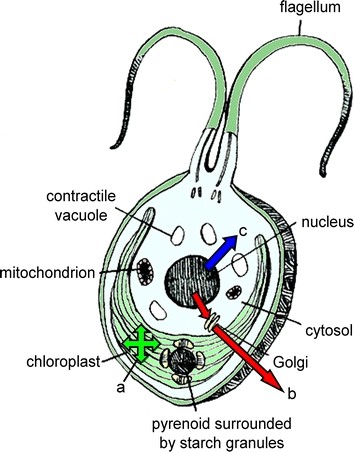Recombinant protein biopharmaceutical production is a huge emerging market for disease treatment. Genetic tools in algae offer new applications for producing and delivering biopharmaceutical recombinant proteins. Here, Lifeasible offers specialized solutions for the genetic engineering of microalgae for therapeutic protein production.
Biopharmaceuticals are drugs synthesized in living organisms to prevent or treat disease and include recombinantly produced vaccines, antibodies, enzymes, hormones, antibiotics, cytokines, growth factors, thrombolytic agents, and immune signaling proteins. Many expression systems are available for large-scale production of therapeutic proteins, such as bacteria, yeast, mammalian cells, and insect cells. However, each of these systems has its advantages and disadvantages. In recent years, microalgae have been considered an ideal candidate for safer, efficient, and economical therapeutic production methods. It is used in the production and delivery of biopharmaceuticals. It is able to overcome the disadvantages of high cost, product range, product efficacy, low yield, contamination risk, vulnerability, and immunogenic effects. Moreover, nuclei and chloroplasts can be genetically manipulated to produce biopharmaceuticals in green microalgae.
 Fig 1. Chlamydomonas reinhardtii as a versatile recombinant protein production platform. (Specht E, et al., 2010)
Fig 1. Chlamydomonas reinhardtii as a versatile recombinant protein production platform. (Specht E, et al., 2010)
The unique advantages of microalgae and our advanced transgenic microalgae technology have led us to develop the tremendous potential of this photosynthetic unicellular plant as a platform for recombinant protein expression. Lifeasible has established a full-fledged Chlamydomonas reinhardtii production center to develop biopharmaceuticals for various medical applications. We have sequenced the three genomes in Chlamydomonas reinhardtii (chloroplast, mitochondria, and nucleus). We can realize that each of these genomes can be transformed in Chlamydomonas with different transcriptional, translational, and post-translational properties.
We have expressed a fusion protein with in vitro bactericidal activity by transforming antimicrobial peptide sequences into microalgae using a plant expression vector and promoter. In addition, we expressed ToAMP4 in microalgae to exhibit antifungal activity.
We expressed various human proteins in algae, including cytokines and growth factors.
Conventional vaccines are usually produced from attenuated or inactivated forms of the pathogenic organism itself. We use microalgae as a platform for the expression of pathogenic antigens to produce oral vaccines on a large scale.
In addition, we are developing other algal systems to produce recombinant therapeutic proteins.
At Lifeasible, we can quickly help you produce recombinant therapeutic proteins in microalgae through genetic engineering. We are your trusted partner in all aspects of microalgae research. If you are interested in our solutions for the genetic engineering of microalgae for therapeutic protein production, please do not hesitate to contact us.
Reference
Lifeasible has established a one-stop service platform for plants. In addition to obtaining customized solutions for plant genetic engineering, customers can also conduct follow-up analysis and research on plants through our analysis platform. The analytical services we provide include but are not limited to the following:
Get Latest Lifeasible News and Updates Directly to Your Inbox
Mechanisms Regulating Plant Chloroplast Biogenesis
April 15, 2025